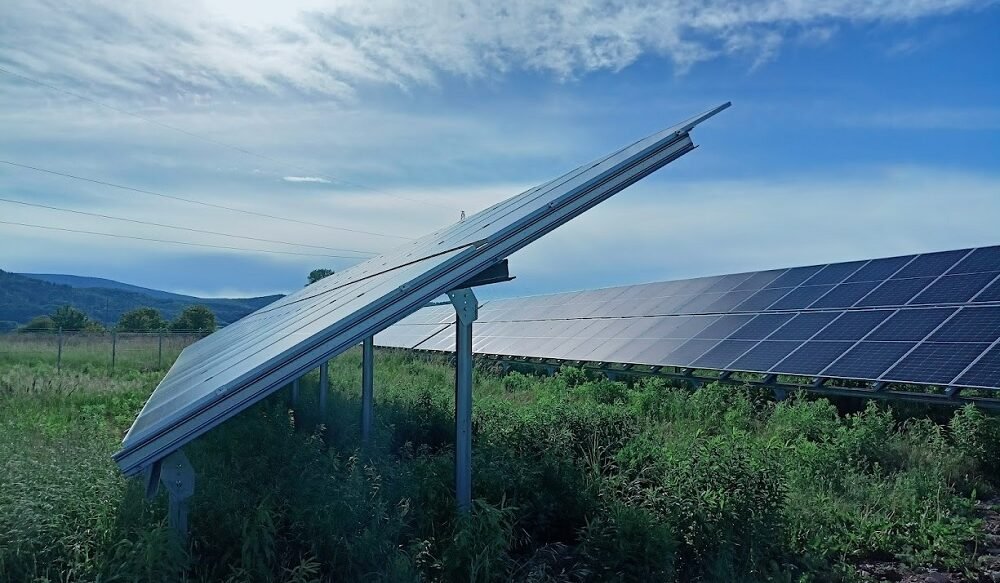
The government is working on changes to tax regulations that could impact the photovoltaic industry. PV farm owners face a nearly tenfold increase in tax costs. The new tax rate could account for up to several percent of their revenue.
The Ministry of Finance is preparing regulations to introduce changes to the principles of property tax. The project is not directly related to photovoltaic farms, but they could suffer greatly if the Ministry of Finance’s proposals are implemented.
Although the new regulations are intended to reduce ambiguity regarding the taxation of buildings with the property tax, the Ministry of Finance has drafted the changes in such a way that the new regulations may cause significant confusion regarding the taxation of photovoltaic farms.
The problem is that there is no clear definition in the draft regulation that the construction tax – 2%. Its value should apply – only to the building parts of photovoltaic power plants, i.e. – as has been recognized so far – only to the supporting structures. The draft clearly states that the concept of the structure will include, among other things, the building parts of wind farms and nuclear power plants – but photovoltaics are not defined in this way.
According to the lawyers, this creates an opportunity for municipalities to impose a much higher tax on ground-based PV plants, taking into account the value of not only the structural parts, but also other components that have a much higher value.
Will the new tax take into account consumption?
Andrzej Nentwig, partner at Res Operations, a company that operates more than 750 MW of PV farms operating in Poland, confirms in a comment to our website that the proposed regulations allow for taxation of all elements of a PV power plant, without taking into account their depreciation.
– The changes in the definition of buildings proposed by the Ministry of Finance in the recently published draft amendment to the Local Taxes and Fees Law, if they come into force in their current form, will be revolutionary, but at least as far as the photovoltaic industry is concerned, we are talking about a revolution that will probably devour not only its children, but unfortunately a significant part of the producers of energy from photovoltaic sources – Andre Nentwig’s comments.
– The current version of this amendment not only fails to specify what should constitute the tax base for the two percent tax on buildings, which it would be advisable to confirm as the market practice developed in recent years is consistent with the legislator’s intention, but even It opens a big door for tax authorities to also start taxing the value of photovoltaic panels, which are a major component of the cost of installing PV. Worse, perhaps without taking into account the depreciation of these components, which would be an additional pain and a disproportionate burden on solar plants that have been generating power for some time. – He adds.
Up to 10 times higher tax
The ambiguity of the draft regulation prepared by the Ministry of Finance is another problem for PV farm owners. The profitability of these investments is threatened by the increasing shutdown of PV farms during peak production. Although investors have the right to receive compensation in such cases, they cannot always use it in practice, and the amount of compensation may not compensate for the lost revenue. Now the profitability of PV farms may be severely affected by changes in the regulations being developed by the Ministry of Finance.
This prospect raises great concerns among PV farm owners. According to information provided to us by one of the leading developers of PV farms in Poland, owners of PV power plants may face an increase in tax costs of almost 10 times. Currently, assuming that only structural elements of a photovoltaic farm are taxed, the amount of tax on structures in the case of a 1 MW ground-based photovoltaic power plant is about PLN 5-10 thousand. At the same time, after changing the regulations, the amount of tax on construction, according to his estimates, may increase to PLN 50-60 thousand.
The increased tax could take away several percent of revenue.
According to André Nentweg of Res Operations, the tax increase could be even higher, with initial calculations suggesting a risk of a tenfold tax increase on photovoltaic power plants.
– Unfortunately, the Finance Ministry’s proposals, from the perspective of our country’s pursuit of a real, not just declarative, energy transformation, cannot be assessed in any other way than extremely negatively. The impact of such a measure, which should turn out to be just a legislative oversight subject to immediate correction, would be devastating for the Polish photovoltaic sector – especially the commercial one. -Andre Nentwig says.
.
.
– In practice, at current energy prices, and even assuming some increase, the increased tax could amount to several percent of revenue (revenue, not income). Produced by photovoltaic power plant. Without any ill will, it should be clear: imposing a tax in this way could lead to a radical reduction in the profitability of investments in photovoltaic power plants. It is likely to limit the pace of development of this branch of the renewable energy sector, which would clearly harm the achievement of the supposed goals of the “Green Deal” or the actual reorientation of the Polish energy sector towards renewable energy. Many representatives of the photovoltaic industry are very concerned about the recently published proposal and hope that the final form of the amendment will be changed so as not to deal border blows to an industry that is ultimately important for the Polish economy. – He adds.
The government is still working on the draft amendment to the Agricultural Tax Law, the Local Tax and Fees Law, the Forestry Tax Law, and the Stamp Duties Law, No. UD72. The Ministry of Finance wants the new regulations to come into effect by the beginning of 2025.
Piotr Bajak
© Copyrighted material. All rights reserved. Further publication of the article only with the consent of the publisher Gramwzdrowie.pl Sp. Zoo

Echo Richards embodies a personality that is a delightful contradiction: a humble musicaholic who never brags about her expansive knowledge of both classic and contemporary tunes. Infuriatingly modest, one would never know from a mere conversation how deeply entrenched she is in the world of music. This passion seamlessly translates into her problem-solving skills, with Echo often drawing inspiration from melodies and rhythms. A voracious reader, she dives deep into literature, using stories to influence her own hardcore writing. Her spirited advocacy for alcohol isn’t about mere indulgence, but about celebrating life’s poignant moments.










